#--- like what the fuck is that title
Explore tagged Tumblr posts
Text
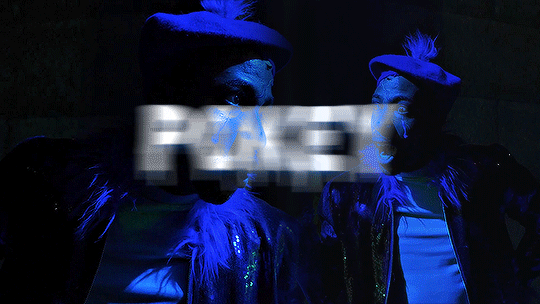
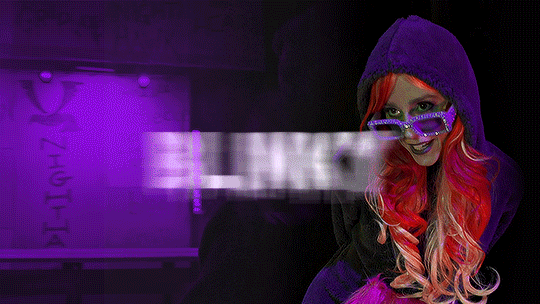
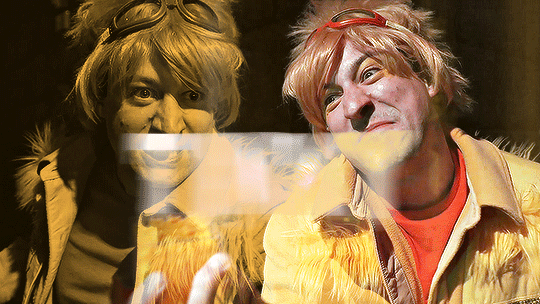

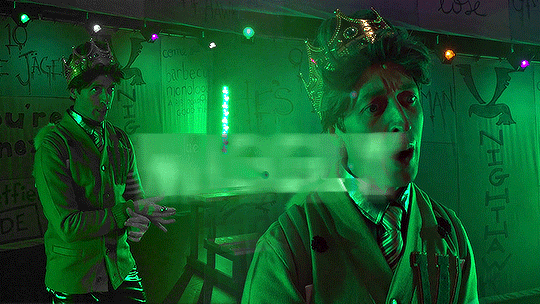
@pscentral event 20: antagonists ↳ THE LORDS IN BLACK in NERDY PRUDES MUST DIE
#nerdy prudes must die#npmd#starkid#npmdedit#team starkid#the lords in black#hatchetfield#hatchetverse#npmd spoilers#userisiah#userfaiths#userbaz#usercats#userhallie#noooo fucking clue what to tag in this fandom lmao#musicaledit#? sure#anyway yeah i watched npmd and immediately had to make this i was up until 1 am last night#wouldve been earlier but i had to take a break for dnd lol#i was gonna do a tua set for the event but this is easier and better so like. slay#i just wish they had more screen time. pokey and tinky have less than 20 seconds each </3#oh and the titles and stuff are from the fan wiki. hope i didn't get anything wrong#i've been getting a lot of use out of this motion blur text transition its so funky fresh#*edits
10K notes
·
View notes
Text
Ideology of Exceptionalism and Gravity Falls; meta and character analysis

I had a whole ago read a post by @icanlife that had a quote by Alex Hirsch on Ford's greatest flaw, and wanted to explore what the flaw is, which is the ideology of exceptionalism; in the exploration, I’ll touch on what it is and how it is used in abusive relationships and cults, as well as how it drives multiple Gravity Falls characters and consequently how it impacts relationships between these characters, and how the show ultimately refutes exceptionalism.
Quick note here; I am not in any way, shape or form a psychologist nor have any formal training in psychology; this is written from my own experiences with this ideology and my own forays into psychology and trauma-informed learning. It is also written with a loose understanding that is likely not broad enough to cover all references to cults, extremist groups and abusive relationships.
The Ideology of Exceptionalism
First of all, we have to get through a drier bit, which is… what is the ideology of exceptionalism and how does it arise? Might be fairly obvious, but it is the belief that you are, or belong to, a group of exceptional people, thus more important and worth more than anyone else; ie, those who don't qualify as 'exceptional'. It is often a subconsciously learned ideology. Now, what qualifies one as exceptional can be extremely varied; generally it revolves around something that provides some form of privilege. Thus, it might be, as the main exceptionalist idea in Gravity Falls, 'intelligence', or power, or it can be such things as attractiveness, quantity of money one has, species, nationality, or skin colour and ancestral heritage. The ideology of exceptionalism, being by nature hierarchical, devalues, and at its worst, openly and violently dehumanizes those who do not qualify as exceptional.
For why exceptionalism occurs is an extremely broad topic, but I've personally found that, for exceptionalism revolving around intelligence, it's a result of a poor sense of self-worth, and having one's self-worth tied to what makes one exceptional. Poor self-worth itself (again, broadly) is a result of childhood trauma from a lack of positive affirmation and unfulfillment of the emotional needs of the child. Meanwhile, self-worth becoming tied to the quality of exceptionalism generally is a result of when positive affirmation was pretty much solely provided around their 'exceptionalism', especially when provided derogatory commentary, or a blatant example of how they would be treated if they aren't 'exceptional'. As a result of the general lack of affirmation, self-worth then becomes often solely reliant on the qualities of exceptionalism, as that is the only way for the child (and later, adult) to get affirmation of their worth, as well as out of fear of being ‘not worth anything’ like the examples of ‘non-exceptional’ people they have been given.
This is especially likely to occur when the child is a social outcast; the adoption of the hierarchical ideology of exceptionalism, and the devaluation/dehumanization of others often occurs subconsciously as an avoidance/minimization tactic from pain. This is to say, the child, and later the adult (if healthy self-worth is not established) goes 'it doesn't matter what the non-exceptional people say or if they accept me since I matter more than them because of my exceptionality'. It can even be taken further, that being shunned is part of one's exceptionalism, and becomes part of the qualifier of being exceptional. For instance, 'they just can't understand because they aren't exceptional and that's just a part of being exceptional'. This idea also neatly tailors into the part of the concept of being better then others means you are separate from others; this can be taken that someone who is special, needs to be alone to be truly special.
Obviously, exceptionalism is not a healthy coping mechanism for poor self-worth, as often such people constantly feel the need to prove and show off their exceptionalism to gain that affirmation and avoid rejection, which is stressful. As well, it often negatively impacts their relationships with other people as a result of the arrogance of believing that they are better than most others, or even deliberate sabotage due to their arrogance. This occurs as they flatten the complexity of human experience to black-and-white hierarchical categories of exceptional/not-exceptional through constant judgement of those they meet, and often refuse to engage with people who don't belong to their 'exceptionality', or even people they simply don't like, even if they technically qualify. Generally, those that they do like or have close relationships with, often due to being similar, are automatically labelled as 'exceptional'. Those judged as ‘exceptional’ also become privy to the open judgements of ‘non-exceptional’ others, out of a subconscious belief by the exceptionalist that the other believes similarly; something that may strain their relationship if the other doesn’t ascribe to exceptionalism. This all culminates in the exceptionalist being blind or even adverse to the diversity of experiences, which makes it difficult to create relationships and community outside of echo chambers of their own beliefs (if they can even find this), and subsequently, these people are often isolated and have very few to no close relationships with people.
However, all humans require connections with other people, relationships where one can rely on others emotionally and physically if needed and feel accepted; they also require to feel like they are worth something, that their life has meaning. Lacking meaningful connections and having a crippled sense of self-worth, a deep yearning hole is left in these people. Exceptionalism, especially as it is a narrative constantly pushed by Western society as it validates hierarchies, is then employed as a (often subconscious) trauma response to assuage this yearning hole, with arrogance and denial. And depending on the circumstances, it can be a very strong and definitive trauma response for people.
This isolation and lack of self-worth is catnip to abusive relationships, including cults and extremist groups. These types of relationships often heavily rely on isolating their victims or pulling them into echo chambers of solely the abuser’s rhetoric, to redefine what is healthy through gaslighting; as the exceptionalists are already isolated, this makes them extremely susceptible. They also often provide these people affirmation, and in these cases especially about their exceptionalism, thus confirming their self-worth, their 'specialness', while also providing them the connection they have been lacking, either through the cult community or through the abuser’s own presence. These emotional needs, which haven’t been met in a long time, if ever, begin to be fulfilled; something that abusive relationships and cults hinge on, rather than any form of logic.
Ideology of Exceptionalism and Gravity Falls
The main characters within Gravity Falls which are heavily ascribed to exceptionalism would be both Ford and Bill; this characterization deeply impacts the story and their relationships with others (technically the Northwest are another case regarding wealth, but less directly impact the storyline and thus tangential; Gideon also is an example, but as a mirror of Bill). With each of these characters I’ll go into detail within their sections on the way they began to ascribe to exceptionalism, and how it plays out later in their relationships; I will first begin with Ford, then move to Bill. Then, to cap it off, I’ll go into the characterization of Stan and the way Gravity Falls refutes exceptionalism.
Ford and Exceptionalism
Firstly, the quote from Alex Hirsch that kicked this whole baby off, as mentioned previously;
“Ford sees Dipper as someone who’s special like himself. That’s Ford’s great flaw, his arrogance is he believes that there’s special people, and everyone else. That human attachments are actually weaknesses. And the song and dance that he’s giving Dipper right now, is the song and dance that he gave McGucket, back when they were younger… ‘You and me are different, we’re better than everyone else. We have a path that no one else can understand, and only us can do this.’ It’s a very seductive idea for Dipper… Dipper is a smart kid, but Ford’s projecting. Ford loves Dipper because he sees someone who’ll tell him ‘yes’ to everything. Who’ll never challenge him, who’ll do a really insane dangerous mission.”
Very blatantly Alex Hirsch calls Ford out on his arrogance in the belief that he is special, in his belief in the 'lone hero' complex, in his belief in exceptionalism. And really, it should be no surprise that Ford does so, considering the way he's depicted as a social outcast as a child (other than Stan), and the way his parents have been clearly shown to be not particularly emotionally supportive (“I’m not impressed”); they don't provide positive affirmation except for his intelligence (mostly due to the possibility of money making through it…), while also actively comparing him to Stan who is derogatorily ‘not-exceptional’, and ‘worth less’. This all sets Ford’s self-worth up to be fragile, and other than Stan who wholeheartedly accepts him, he is isolated and invalidated; plus, the only other validation he receives is around his intelligence. All very classically fitting the profile for exceptionalism.

Image id: Stand and Ford when they were children, both clearly enjoying each other's company.
Ford’s belief in his exceptionalism catalyzes after the shattering of his and Stan’s relationship. Previously the twins are shown to do everything together, having a very close caring relationship; something unlikely if Ford thought he was better than Stan. Also, when Ford is talked to about his opportunities, Ford looks uncomfortable at the way they talk about Stan as inferior, compared to how he himself is being praised; but in the offer he’s simultaneously finally being validated, he’s being told he’s someone worth something, and he’s going to be someone worth something after this. And then the science fair incident occurs, and Ford loses that validation from his parents, from the judges and a future of more validation; after being promised validation and acceptance, it slips through his fingers. And in his anger of being denied that, it becomes easy to begin to slip subconsciously into the rhetoric the others have been feeding him; that he’s exceptional, that Stan isn’t, and he deserved to be recognized for his worth. So he breaks the relationship with the only person who accepted and validated him for who he is. With that loss of previous support, Ford becomes then deeply obsessed with proving his exceptionalism to the world to assuage that fragile self-worth, to become accepted, or even better, revered, confirming that he is someone of worth, someone special, like he was promised.
Ford’s obsession also doubly functions as a way to alleviate his guilt over shattering their relationship; if he’s exceptional as he believes, then he’s within the right to respond the way he did, as he’s worth more than Stan, he's better off alone, and he has a right to be angry over being denied that validation. As well, in much the same way as it is used as a way to alleviate his guilt over the end of their relationship, it is also likely used in a way to minimize the pain of being ostracized (although not directly depicted); afterall, Ford’s keenly aware and insecure about his social ineptitude and his six fingers as things that make him different from other people, case in point with his experience visiting Lazy Susans Diner. Thus it wouldn’t be unsurprising if he uses the idea of being worth more than those who ostracize him to imply it ‘doesn’t matter’ what they think. His ostracization by nature keeps him from generally forming close relationships, with the exception of Fiddleford (who much like him, is socially outcast, and intelligent) during his university days. As a result, he's isolated and acutely lonely, having lost Stan.

Image id: One of the missing Journal 3 pages in TBOB, detailing Ford's botched social interaction in Lazy Susans Diner. In the background is the print of his six-fingered hand.
In his obsession over being acknowledged, Ford, like many others who believe in exceptionalism, identifies strongly with the causes of his ostracization (his intelligence, his six-fingeredness) as part of, or wholly, makes him exceptional. It is obvious through his choice of study; with the grant he has been gifted, he chooses to revolve his work around the weird, the outcast, something that you see Ford gravitate towards being an outcast and deemed 'weird' himself (which in Journal 3 he openly talks about). Something that can be, much like him, framed as 'exceptional'. His work is even recorded in a journal that Ford deliberately chooses to put his six-fingered hand on the cover of. Intertwined with the way it becomes adopted into the idea of exceptionalism, is the keen loneliness from his ostracization and a deep desire to be accepted and a wish to find a community of other weird people.

Image id: Two pages from journal 3, labelled 'Myself', in which Ford is open about being weird, and a social outcast, while also noting his ambitions and that 'Gravity Falls, [is] the place that I fit in.'
Ford and Bill
All of this culminates in Ford becoming an incredibly easy target to manipulate by Bill. He’s desperate to be acknowledged (and thus accepted) by an authority figure so that his belief in exceptionalism is justified and his self-worth confirmed. And he knows he’s intelligent, that he's exceptional because people have told him so, but he just needs to prove it with something that shakes the world. And the grant is finally his second chance after the fair, but he's stuck, and the research is going nowhere, and he's in a town where he doesn't really know anyone and he’s so terribly lonely. And sure, he clings to his exceptionalism but if he can't even prove it then is he really exceptional? Is he even worth anything like he thought he was? And what about what he's left behind, rejected, because of his exceptionalism?
And THEN he finds an incantation and he ignores the warnings because maybe, just maybe, this will be his break to get that acceptance/validation he has been chasing his whole life?
And then it's better than that.
A god, essentially, shows himself to him, an ultimate figure of authority. And he tells him that yes, he is special, he’s worth more than other people, and Bill’s only showing himself to Ford because he is so much more intelligent than anyone else. Ford is suddenly getting his exceptionalism confirmed by a god of ancient knowledge, an immensely intelligent interdimensional being, and he’s also showering him with affirmations, specifically affirmations around what Ford's fragile self-worth is based on. And even better, he's delighted by Ford's six-fingeredness; he's not put off at all, it even becomes his main nickname for Ford, just like it used to be for Stan all those years ago. On top of it all, Ford's own social ineptitude doesn't phase Bill, another thing Ford is self-conscious about; Bill's own social ineptitude as he's not human probably makes Ford feel comfortable, knowing that's not expected from him.
Through Bill, not only does Ford find someone who validates his self-worth through intelligence and even confirms to him that his weirdness is part and parcel of making him special, he also finds someone who he regularly (generally) is in contact with, who enjoys talking to him and even banters with him familiarly. Hell, Bill even deliberately goes out of his way (literally possessing a whole wack ton of rats, then dream karaoke) to celebrate his birthday with him; how long do you think Ford has simply skipped his birthday since he had no one to really celebrate it with? The loneliness, beneath his arrogance and belief in exceptionalism, is being fulfilled; for the first time since Ford was a teenager, he's fully accepted by someone, social awkwardness, six fingers, exceptionalism and all.

Image id: One of the lost pages from Journal 3 in TBOB, the 'one thing led to another' page, with Bill and Ford singing karaoke and drinking together, both clearly enjoying themselves; Bill has an arm slung around Ford's shoulders.
So it's really no surprise at all that Ford fell for this, hook line and sinker. Hell, if I was in Ford's shoes I would fall for it just as hard. And I've seen a few posts floating around talking about how Bill is bad at manipulating, and no, he's not. He was able to pinpoint exactly what Ford wanted and needed, and provided that, was charismatic enough to provide that. Again, manipulation isn't about logic. It really isn't; it's about the emotional core in people, what people lack and what you can give them to slowly reel them in to sing your dance and song. And people will ignore vast swaths of red flags when you're finally being accepted, when you're finally getting your emotional needs met at least in some way or form. It's better than not having them met at all, such as previously. So Ford worshipping Bill is really not a surprise, especially as Bill deliberately stoked it.
All of this is part of why you see Alex Hirsch call Ford's belief in his exceptionalism his greatest flaw; because it allowed him to be very easily manipulated by Bill, and by its nature kept Ford isolated from others, evident by his arrogance in assuming he knows best and refusing to see other people who aren't as 'intelligent/weird' as him as worth getting to know, listen too and even reach out to ask help from, it's him believing he has to be the lone hero as someone whose 'special'. It's something that blinds him to the danger of his work around the weirdness of gravity falls because he’s desperate to seek a place where he and his weirdness belong, and it's something that plays out in each and every relationship he has because it's something he clings to so deeply. It's what cost him his relationship with Stan, who previously accepted him completely, and, as he's disinclined to form new relationships and as Bill actively strokes his paranoia (Trust No One…), ultimately further increases the hold Bill has over him. It's only Fiddleford’s presence as he works with Ford that allows him some form of outside reference and reprieve from solely Bill’s influence, something that Bill resents deeply and is clearly jealous and angry about, even if Fiddleford is helping create the portal. And it's ultimately Fiddleford, once he was aware enough of what was happening, calls Ford out on it, seriously jeopardizing Bill's influence over Ford; but Ford is too invested in the portal, in chasing his own ambition and caught up in Bill’s manipulation to take him seriously, until the incident with the trial, and Ford beginning to hear other voices then Bill.
Ford’s Exceptionalism and Wider Relationships
Now back to how it plays out in all Ford's relationships; we've already gone over it with Bill's influence, because it made him extremely easy to manipulate, and with his disregard of Stan in favor of validation of his exceptionalism. But Ford, as pointed out by Alex Hirsch, also exerts the ideology's seductive rhetoric to both Fiddleford and Dipper (who look up to Ford) in a similar way that Bill does with him (although there is a difference of it being used intentionally and maliciously, compared to subconsciously and earnestly, even if it is problematic). Ford, with his black-and-white view of exceptionalism, sees both Fiddleford and Dipper as people who are like him; 'exceptional', and so he treats them as such, and uses this rhetoric to coerce them into helping him.
For Fiddleford, the lure is how he can change the world, how he can be finally acknowledged if he helps Ford with the portal. And it works well; he willingly chooses to leave his own work and his wife and young son, to work with Ford. Much like Ford, Fiddleford himself is also a social outcast and regularly presumed less smart than he is, and he’s got a chip on his shoulder to prove himself, to gain acknowledgement and recognition from the world at large. Although Fiddleford has a family which presumes he’s not entirely lonely like Ford is, he also clearly has deep feelings for Ford, some which are hinted to be more than just ‘friendly’ feelings; it is likely the combination of the lure of validation and spending time with Ford, a kindred spirit that accepts him and an old friend/crush, that causes him to agree (afterall, it was Ford who made Fiddleford feel accepted and choose to stay at Backupsmore). And Fiddleford’s not even considered a partner, but rather an assistant to Ford due to Ford's arrogance, and he still drops everything to go! It’s more about their relationship and connection rather than validation, but that doesn’t stop Ford from espousing exceptionalism. And this is a distinguishing difference, because although Fiddleford would like recognition, he’s not there solely because of it; he’s not a believer in exceptionalism nor arrogant about his skills, and so, unlike Ford who is blinded by his obsession, he’s much more aware of the dangers of the weirdness of Gravity Falls. Thus, he's actively calculating the risks involved, and when he realizes there could be potentially devastating consequences of the portal, he attempts to talk Ford out of it; this fails due to Ford’s own denial and obsession over the portal. In the end, it all goes terribly sideways, and Fiddleford ends up losing everything he had; his wife, his son, his friend, his memories and himself to the trauma he had experienced at the invitation of his friend with the lure of validation and company, due to the memory gun he had created himself.
As for Dipper, much like Ford, he also has issues with self-worth (many of the episodes deal with Dipper finding self-worth; ie, the manotaur episode), has a physical oddity (his birthmark) and by far the trait he relies on most for worth is his intelligence (for example, in one episode he rubs it into Mabel's face over and over again in beating her in games). He's also extremely desperate to be recognized by authority figures as someone intelligent, case in point when he summons the dead after being made fun of by the government agents to try and show them that the information he's gathered is important after Stan dismisses his knowledge. This desperation to be seen as someone of worth from Dipper, much like Ford, extends to the need to be a hero, something he even says at the end of the zombie episode; yet, due to Mabel, unlike Ford he's not a lone hero, and Mabel also half the time acts as the hero.

Image id: Zombies crawling out of a crack after Dipper summons them; Dipper and the two agents look on in horror.
It all culminates in Dipper hero-worshipping Ford when he returns; really, no different than Ford worshipping Bill. And Ford clearly finds it extremely flattering; Dipper's attention and amazement of him feeds his exceptionalism. Exactly how Ford responded to Bill, Dipper is willing to do anything for Ford, excited too, in an attempt to impress Ford and be validated and accepted. And for Ford, that's an extremely heady feeling, especially as someone who has been constantly alone the last 30 years, especially when he had one previously confirm his exceptionalism all those years ago and stopped, and now someone is once again affirming that idea. And Ford doesn't have to be alone again, because he's found a kindred spirit in Dipper as his assistant, someone ‘just’ like him, someone who is exceptional. Because he sees himself in Dipper, he begins to espouse exceptionalism unconsciously, by praising Dipper's own intellect and adventurous spirit, assuaging his feeling of self-worth, while also telling him he's more important or better than others because of it.
And it's seductive to Dipper, because he wants to hear those affirmations of his self-worth, especially as he hero-worships him, but Dipper isn't sold on it, because it means leaving Mabel behind, it means believing that he's worth more than Mabel (and also, Stan, and all his friends he’s made in Gravity Falls). It's ultimately because of his relationship with Mabel that he rejects the ideology; he's not isolated the way Ford was with Bill, and he's not willing to break that relationship for that acknowledgement, because his relationships matter more to him.
Bill and Exceptionalism
Now of course, that's only on the Pines; what about Bill?
While it's obvious that Bill uses exceptionalism as a main manipulative tactic, it's not just an ideology he sprouts emptily; it's also an ideology he believes in, just like Ford, although it's less based on intellectual exceptionalism, and more on power and 'weirdness'.
This most distinctly can be seen in Bill's denial about what happened to his home dimension; Bill's belief in his exceptionalism occurs as a pain avoidance tactic from killing his whole dimension. Bill was clearly a social outcast within his dimension due to being able to see 3d; he's not accepted, and not trusted, to the point that there is medical intervention to make him blind. That's a deeply traumatic experience that completely erases one sense of self-worth, where one’s sanity is called into question by your parents on something that is not harmful, that's beautiful and you just want to share with them. It's a deep and clear rejection of who Bill is, and his ability. As a result, out of a desperate bid to be understood and accepted, he ends up trying to show them the stars. And it ends up killing everyone.

Image id: Page of TBOB, on 'The Early Years' which notes that Bill was an oddity for seeing 3d, something that was illegal to speak about. Bill frames it as something that made him 'special' and better than all the others.
Traumatized, and originally rejected by the dimension, he instead weaves an excuse of exceptionalism; that it doesn't matter what he did to them because he's exceptional and he's worth more than all of them because he can see 3d, because he's powerful, so he shouldn't/'doesn't' feel any remorse about it. With such a traumatic result of trying to be accepted by people, he rejects the idea of trying to be accepted for who he really is; instead adopting a facade of a monster that he believes he is (and eventually, becomes).
Even if he clings to the delusion of exceptionalism, and shuns attempts to find true acceptance, he still wants it; and that's where his henchmaniacs fit in, as they're all, as Bill's noted when trying desperately to get Ford to join him, weird; each has something 'wrong' with them, which is why Bill accepted them as his lackeys (although it's not like we know the context around these). It's a surface-level acceptance however, one more predicated on fear than emotional acceptance. He's taken his 'weirdness', much like many do who believe in exceptionalism,as ‘part of what makes him exceptional'.
In the same way that Ford wants to show the world that he's smart and intelligent by building the portal, Bill does so by wreaking havoc and taking over existences as a way to show the world that he's powerful, that he's someone to be reckoned with, that he's not someone to be ignored because he's someone who's worth more than others. If you can't be loved and accepted, then being hated and feared is better than being ignored; acknowledgement at least approaches acceptance, it's validation of some sort of worth. It also functions as deliberate self-sabotage of his morals, by proving that he is the monster that killed his entire dimension; if that's what he is, then that's who he's going to be, because if he wasn’t, then he has to come face to face with his remorse over what he did to his dimension and his whole house of cards around his exceptionalism and not caring collapses. So instead he keeps feeding the delusions the denial, and lies and lies and lies and keeps lying to ignore all of it, to wrap himself in this shroud of exceptionalism and brutality as a way to function. And it somewhat works, because he's mostly deluded himself about it all, even if subconsciously he knows.
And of course, this display of Bill's exceptionalism is what brings Bill to earth, to Gravity Falls, and to manipulating humans. In meddling with earth and humanity, beyond Bill's goal of taking over earth and fleeing his own unravelling dimension, he also enjoys reaping the benefits of being worshiped by humans, who find him awe-inspiring. Their amazement of who he is, and Bill's own posturing and manipulation of people leads to Bill literally forming cults (ie ciphertology) or having apprentices that worship/find him (to varying degree) inspiring; all reinforcing his feelings of exceptionalism.
Of course, Ford numbers among these people; he praises Bill and worships him, as he's played like a fiddle by Bill, because his self-worth and belief in exceptionalism is fucked up in a way that perfectly resonates with Bill’s. Because it's the exact same types of issues around self-worth, around being an outcast, being weird and wrong physically, and yet at the same time gifted. And Ford clearly is incredibly lonely and yearning for acceptance, but so is Bill; since the beginning he's been trying to find someone who would accept him, even if he's given up on it. And for his song and dance to entice Ford in, he pretends he's not crushed dimensions for fun, that he's not a 'monster'; a version of him he buried after he had tried to show his parents the stars, one that he occasionally resurrects and puppets around for manipulation (all lies are better when they have a grain of truth). And this version of him is worshipped, but above all is accepted, is loved by Ford. The softer parts of Bill, even if they are still weird as fuck, the parts that were never far beneath the surface for all his deluding, become loved by Ford. Much as Ford becomes hooked on Bill’s praise, Bill also becomes hooked on Ford's genuine love and care. It becomes personal, unlike any previous ‘inspirations’ and Bill over time gets to the point that he feels accepted, safe enough with Ford to share about his dimension much more close to the truth then he did with any of his henchmaniacs. He becomes vulnerable with Ford, in response to Ford’s own vulnerability with him. He’s finding acceptance for the first time in his life around the softer parts of himself, not just the feared acknowledgement that comes from his dimensions conquering; much like Ford is finally finding companionship and acceptance with Bill, not just only intellectual validation. Bill's also for once, not just self-serving; he cares, and goes out of his way to take time with Ford, even celebrating Ford's birthday (in the unique way he does things), both with the rats and the karaoke.

Image id: One of the lost Journal 3 pages in TBOB. Ford recounts Bill talking about the destruction of his dimension, and calls himself by implication a monster.
They're both fulfilling each other's emotional needs, needs which both of them have struggled with most, if not all of their lives (although their relationship is certainly not healthy, considering it's codependent as fuck, riddled with exceptionalism and oodles of power imbalance issues). And suddenly, against Bill's plans, Ford's no longer just a disposable pawn, but someone Bill wants as part of his team, someone by his side, closer than his henchmaniacs are. He's unwittingly fallen for Ford, and so when everything goes sideways in his plan, and Ford swears it off, suddenly cutting off their relationship and that acceptance Bill had finally felt, he spirals into grief and anger from the rejection. As a result, he becomes extremely abusive to Ford in desperate attempts to continue their relationship, and ultimately he becomes obsessive over Ford joining him again as Ford continues to refuse, as evidenced by both Weirdmageddon and the Book of Bill.
Stanley Pines, and the Refuting of Exceptionalism
Exceptionalism, being a negative driving factor behind many core character dynamics, is ultimately refuted by the show. This occurs multiple times over the show, such as with Mabel in the Pioneer Day episode, especially compared to Pacifica, but mostly through Stan's characterization. Stan is someone who has been since the beginning characterized (if lovingly so) as someone who is a failure by societal standards; he’s an older man running a run-down tacky tourist shop to swindle gullible tourists out of their money, has multiple divorces, has an ongoing feud with a literal 12 year old, clearly has had multiple mishaps with the law (some ongoing), is generally pretty self-serving and is extremely lonely and really had no close relationships until Mabel and Dipper showed up. He's not exceptional; he's not even what we would consider 'decent' enough to have a 'typical, hard working job’. In short, he’s a failure, a stark difference to the idea of 'exceptionalism' that characterizes Ford. If he's gifted in any area, it would be charisma (debatedly), not anything else.
But it's still Stan who rebuilds the portal from literally only one journal (not all three!) and gets it to work. It even seems like he only needs some codes from the other two journals when he does get them, suggesting that he was able to extrapolate from what was left and the first journal’s blueprints to fix it entirely, something that is extremely difficult and technically complicated (Ford, Bill and Fiddleford all worked on it together!). Stan's able to do it, even if it's been shown he's not 'naturally' gifted in that area. And it's something he does as a result of his deep care for Ford; because even after their fights, he cares about Ford and wants to right his wrongs, believes he should, because of his whole life of being defined as a failure and even worse than that, screwing up his ‘exceptional’ brother’s life. And he’ll do it even if that means learning how to build an interdimensional portal, even if it takes up thirty years of his life doing so, and he doesn't waver. Much of this is connected to his own complexes around being deemed a failure compared to Ford, having failed to succeed in his life, and how he feels that he needs to atone for screwing up Ford’s life, now for the second time; but beneath it all, he also cares. Much like Ford, he's extremely lonely, but he's not blinded by Ford's arrogance, and as a result he wants to make sure Ford's safe, because that's what he used to do, they’re twins, they grew up together, they once they had fully accepted and cared for each other, and dammit that still means something, and Stan hasn't found that depth of emotional connection since. So if possible, he wants to rekindle that closeness they had, but first, he needs to bring Ford back.
And in the end, it's not Ford's own special gun he built using his intelligence that 'kills' Bill. It's Stan, someone who Ford had long ago broke it off with in search of validation of his exceptionalism, someone who both Ford and Bill labelled as 'not-exceptional', who defeats Bill. It's exceptionalism's devaluation of people who are 'not-exceptional' that causes Bill to underestimate the Pines beyond Ford, and it's only when Ford put aside his exceptionalism and his refusal to accept and trust 'non-exceptional' people, that is, trust Stan once more, that causes Bill to end up defeated by Stan.
In the end, it's not about who's 'smarter'; it's a reminder that everyone has different skills and are better at different things, but that doesn't diminish one's worth or value, and that just because someone isn't naturally 'gifted' in an area doesn't mean they can't learn or use different ways to get around obstacles. Ultimately, it comes down to that no one is worth more or less than other people; exceptionalism is a lie. It’s a lie and an excuse, and it's certainly not a healthy way to assuage one's poor self-worth. What does matter is creating positive healthy connections with other people, and caring about them. This creates a community where you can be yourself and be emotionally fulfilled through these connections; and when opposition does arise, you become able to fight it together, and fight so much stronger than if you are alone.
And by the end of the show, you see that. Ford begins to let go of the ideal of exceptionalism and its black-and-white categorization; finally recognizes his own faults around prioritizing validation of his intelligence and exceptionalism over his relationships, and finally, after all the years, chooses to create and rekindle positive relationships with people, trust people, and make amends. And in the end, he goes sailing with Stan, prioritizing their relationship, finally fulfilling their childhood promise.

Image id: One of the pages written by Ford into TBOB. Ford refutes Bill's idea of happiness, and says he has finally found his own happiness, and it looks like the photo taped in, of Stan, Ford, Dipper, Mabel, Soos and Wendy, all smiling together.
TLDR: Exceptionalism, an ideology of categorizing people into being special and worth more vs plebian and worth less, is a trauma response and subconscious ideology that characterizes Ford and Bill’s lives, deeply impacting all their relationships as it is used to coerce people into doing what they want, makes Ford easily manipulated, and breaks relationships through their arrogance. It is ultimately denounced through the way Dipper chooses to reject Ford’s offer and his rhetoric of being exceptional, and through the way it's not Ford’s intelligence, but rather Stan, who has been labeled as 'not-exceptional' and a failure at life, that defeats Bill through trickery. It's a reminder that everyone has worth, and no one is worth more than other people, even if one may be gifted in certain areas; the ideology of exceptionalism is fragile and a lie. In the end, creating a caring, loving community around oneself is where strength truly lies, as is seen with the deep care and love the characters have for each other, and the repairing of Ford and Stans relationship.
Thanks to the lovely @eshtaresht who deigned to beta read this monster of a post for me
If you enjoyed this meta, (first of all if you read all this you're a champ!) I've also done another gf meta post! (It's shorter I swear)
#gravity falls#ford pines#stanford pines#bill cipher#stanley pines#stan pines#hugin rambles#hugin rambles gf#journal 3#the book of bill#thisisnotawebsitedotcom#billford#fordsquared#gravity falls analysis#gravity falls meta#book of bill#tbob#christ its so long whyyyy#also oh nooo i wanna do another thing but SPECIFICALLY on trust. gravity falls is ultimately about strength in community and hnnnghhhhh#that makes me wanna cry#also i had so many thoughts. also on the denial part of exceptionalism??? oh baby Bill fucking LISTS it in his book#like sir. please#anyways i love media analysis and im totally normal about all these characters#also like Fiddleford is. like. yikes man.#anyways uhm. does dropping a 6k essay post make me sexy? please say yes (i HIGHLY doubt it#sheesh who's got time to read all this... psssspsspspp theres PHOTOS that TOTALLY dont have more reading in rhem nawwww#i totally dont know what ur talking about mhmmm#if youre like is this about gifted kids- yes. yeah. i just didnt name it. its also about wider things but. yeah#also. unofficial title? Gravity Falls and Gifted Kid Issues an analysis#oh boy sure hope my post about gifted kid issues is a hit on the gifted kid issues site
621 notes
·
View notes
Text

Dress me up, make it tight, I'm your dolly You're my doll, rock'n'roll, feel the glamour in pink Kiss me here, touch me there, hanky panky~
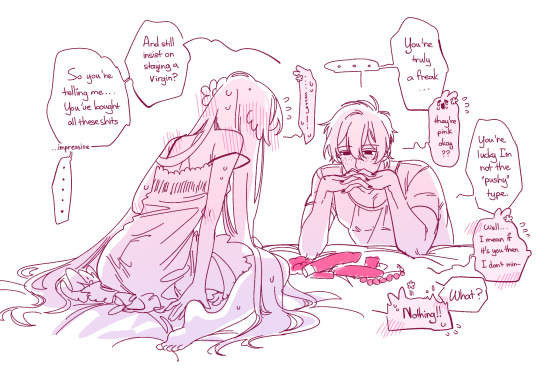
Inspired from This post of @just-dol-headshots and this ask from @hakusins. Don't worry I'm still aiming for your ass Haku-Dean :) References and something under the cut
We all have to agree Bully Robin should have some softer and caring sides. When there's only them two and no one else is around to judge, he can let loose and slip back into that kinda of "Original Robin" we know and I love. I mean, that's what JDOLH made that got me into these swap messes from the beginning jsjkhskjhd you knowww the HUG!!
Reference: Barbie Girl (Aqua) and this cute ecchi Clamp Chobit piece
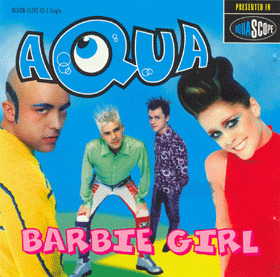

All in all I'm a pink bietch and Dollya won't be losing her V-card anytime soon that I can promise so hang in there okay mr.Bully.
edit: OMG THIS IS MY 1000TH POST TTOTT)) JKSDJLASKJKDLA


SELF-INDULGENT HERE WE GO
#Warning: rant in tags#dollya art#robin the orphan#dol robin#robin the bully#swap robin#swap au#DoL swap AU#Just Dollya herself#degrees of lewdity#dol#pinkcore#pink aesthetic#I don't know man I still can't decide the title for Dollya and “the Weeb” is kinda not very cute eventhough I like it#I'm enjoying this SO FREAKING MUCH I lose track of time and want to draw so many fucking things for it#I have “Plans” for Bully Robin don't worry he will get backstory as well as character development#Dark or light I can't promise I will work with JDOLH and maybe Hakusin too to build this AU#I want to put work into this you understand me?#AAAAAAAAAA THE IDEAS KEEP COMING I hate this yet I love it#What else to tag oh right#yumejoshi#yumeship#I LOVE to draw pink so fucking much#I love pink#I want to draw more pink
796 notes
·
View notes
Text
i love how illumi and hisoka are freak by nature x freak by act. like hisoka could 100% be a normal person if he chose to be one day but illumi couldn't act normal even if he tried
Hisoka is the guy that makes a conscious effort for people to perceive him as a disgusting freak every single day but Illumi doesnt even have to try. he just is. he exists and people are weirded the fuck out by him. Even hisoka agrees too like 😭😭😭😭
#like hisoka in greed island was the definition of. what if he was a normal guy.#all he ever did was lie and play dating sims and maybe 1 volleyball game. he even said shit like teamwork makes the dreamwork#even gon was like wtf hisoka is so ooc right now HFHDXJHHSJGHS#meanwhile illumis normal is just. nonexistent. because hes not normal.#that time he went “theyll realize how different are worlds are” oh yeah.#also to be called fucked up by hisoka? illumi won the fucked up hxh bitch title i fear.#hisoillu#hisoka x illumi#illumi#illumi zoldyck#hisoka#hisoka morow#hxh#hunter x hunter#my post
753 notes
·
View notes
Text
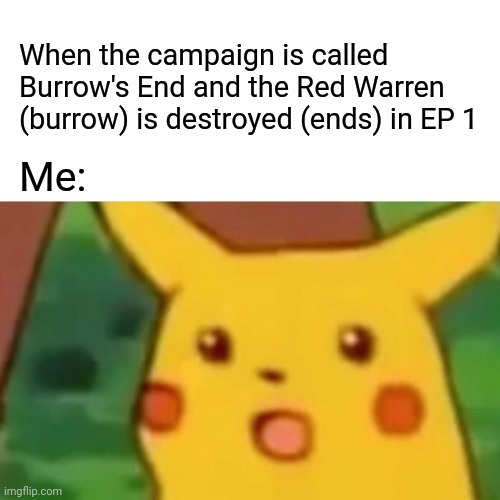
ko-fi
#burrow's end#burrow's end spoilers#d20#dimension 20#lmao this came to me while in the shower#and is honestly a fairly accurate representation of my expression after that first episode#like 'what do you meeeaaannn the show with the ominous title isnt just gonna be a heartfelt stoat season'#lmao when we first learned of the season and some people were all 'well is d&d 5e really the right system for this?#theyre cute animals theyre probably not even gonna be battles there are better systems suited for just cozy animal ttrpg'#how are u feeling after that fucking bear in ep 2 eh? 😂#have trust and faith in Aabria#theres still 8 fucking episodes to go this is gonna be crazy#i am prepared for the emotional turmoil it will cause in me#my textposts
2K notes
·
View notes
Text









Thinking about this Josh today
#he’s like a little baby cow#baby face josh supremacy#so fucking cute#joshy joshy baby boo#he’s so girlfriend#josh is so baby and for what?#sammy move aside josh is replacing your baby title#gvf#josh#joshua michael kiszka#josh kiszka#josh gvf#joshua kiszka#joshua gvf#gretavanfleet#greta van fleet
168 notes
·
View notes
Text
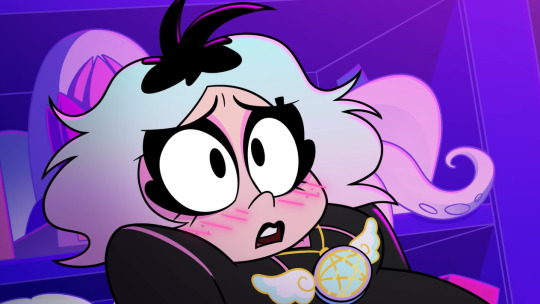
i'm DYINGGGG Emberlynn is adorable and so goddamn funny 😂😂😂 come on all of you people hating on her, you know fine well this is exactly how we are when yelling about our favourites or writing fanfic 🙈🙈🙈
#selfshippers we got a new Hellaverse avatar ahahahaha#grinning from ear-to-ear the whole time. 'Blitzy-kun' took me the fuck OUT#the titles on her bookshelf. the bootleg Charlie plush. holy shitttt#if you're wondering what i look like when writing x Readers it's her 😂😂😂#emberlynn pinkle#weeaboo-boo#helluva boss#helluva boss shorts#helluva boss spoilers#helluva boss shorts spoilers#hellaverse#blitzø#starleskatalks#naughty tag#suggestive
241 notes
·
View notes
Text

Halo
#mmm ok lemme just start w the tags then ill ramble#welt yang#hsr#honkai star rail#hi3#honkai impact 3rd#my art#ok anyways. i didnt have too many thoughts when i started it beyond “uni is killing me but i NEED to do my daily drawings”#some thoughts did go through my mind while drawing which determined the direction this went in#which is that this could be a badass heroic drawing but.. it isn't. this doesn't feel very happy does it?#it makes him look a bit lonely#but something about the pose and the red is ominous. like he's unreadable but theres something sad about it#the moon in the background has a bit of a double meaning - namely the actual moon and its purpose in hi3#as the final destination of the honkai and the story but.. him as well#and as a halo. i love that the three major organizations in hi3 are basically religious groups#and AE basically worships joyce and his legacy (!) and welt tries to fill that. i mean the title sovereign alone means like. absolute ruler#an untouchable figure in terms of power and control over their people#so i really like to give him some sort of fucked up fake halo. he can imitate a saintly figure but it dehumanizes him in turn#he even talks about humanity like he's not a part of it#what's left is some kind of creature mimicking divinity but becoming isolated and inhuman in the process#(gesturing wildly) THINK ABOUT THE COSMIC HORROR POTENTIAL OF BEING A HERRSCHER. HE LITERALLY PERCEIVES REALITY DIFFERENTLY. CMON.
164 notes
·
View notes
Text

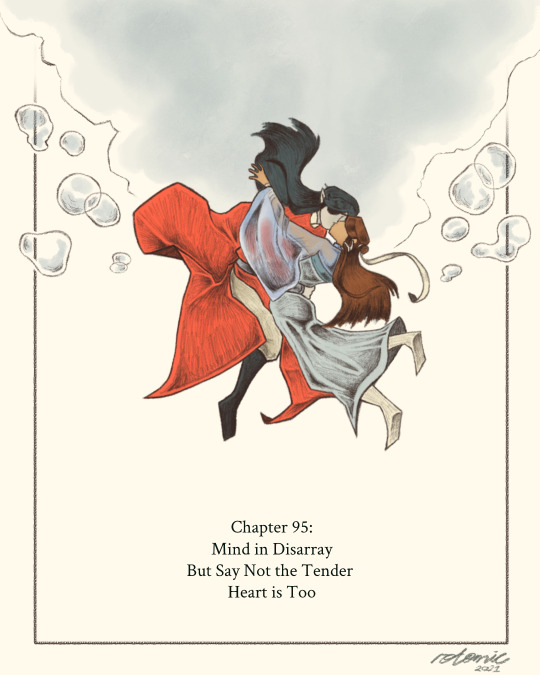

TGCF art from 2021 which were very experimental and very much something out of my comfort zone but am still so satisfied with
(gonna ramble more under the cut 👉 )
My main inspiration for these were definitely classic storybook illustration styles and the watercolor-like illustrations included inside the tgcf books which depict hualian's daily slice of life routines as seen below


I wanted to capture that feeling of warmth i got from reading but i also went with the storybook look because their relationship (and by extension broad strokes of the entire plot) really did feel like something out of actual myth or legend; i'm chinese indonesian and was raised surrounded by chinese culture + values so tgcf felt VERY familiar to me, it threw me back to my childhood reading or listening to tales about chinese deities, i'd say the storybook image definitely came into my mind pretty quickly bc of this
I find this style somewhat hard to replicate now but if i could or have the time to, i really want to continue the 'companion pieces to chapter titles ' concept i did with the last 2 pieces (which are of the same chapter title but i was just indecisive 😭😭), i even had 3 more planned based on my favorite titles before burning out back then



#tgcf#tian guan ci fu#heaven official's blessing#hualian#hua cheng#xie lian#mxtx#danmei#rotomic does artz#IF YOU READ THROUGH ALL OF MY RAMBLING THANK YOU VERY MUCH#as you can see i am Very Normal about this book :)#(said like a liar)#what was 2021 me cooking....like why did they go so hard on these#also bonus hozier in there bc i associate hualian with like real people do a lot#tbh a lot of hozier songs would work for them#i REALLY want to do a companion piece for chapter 243's title bc wowee#it still gets me to this day. i remember it n suddenly im like what the fuck (fond and sad)
1K notes
·
View notes
Text
paul mccartney you're gay and that's final
for legal/ethical/moral/psychological/spiritual reasons this is a joke



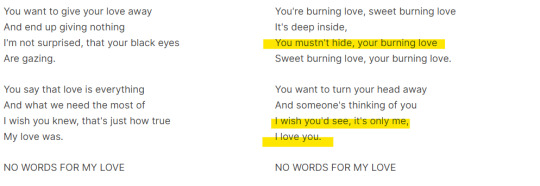
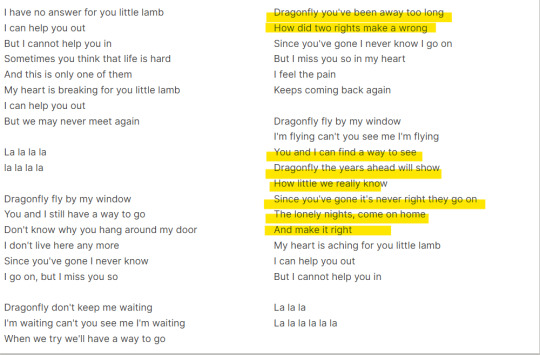

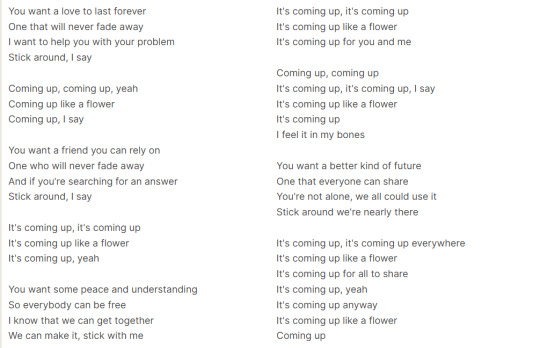



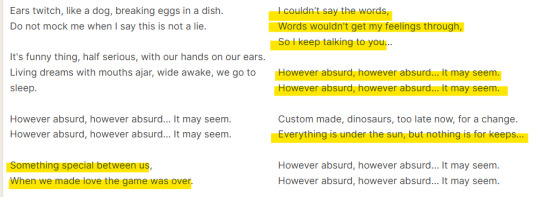
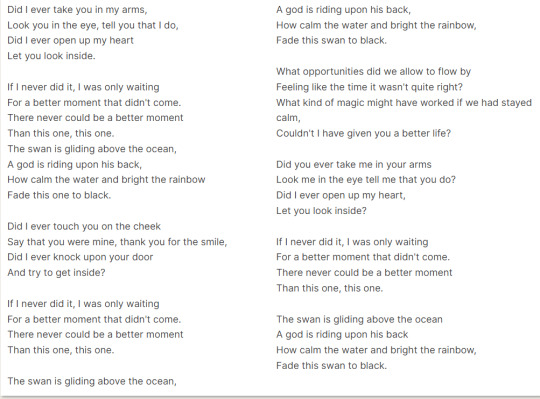
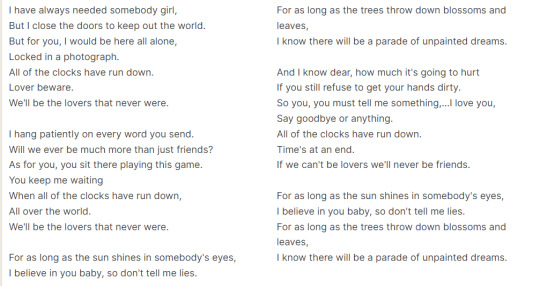

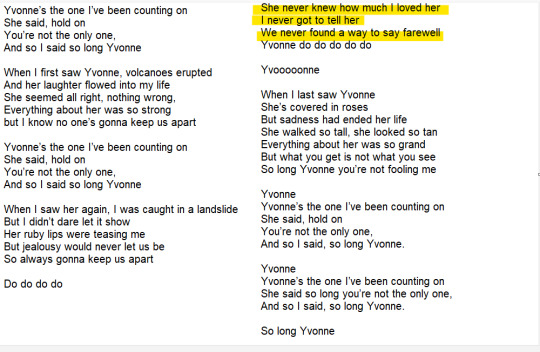


#which could mean nothing. of course.#is this too long? yes. but i had like 10 other songs i mulled over adding so be grateful.#i might say fuck it and edit it and add them back in so dont bitch about it#anyway. yeah the title is a joke but i feel like an interesting story is told through some of these songs. i tried to only do songs im#convinced are at least partially about john. hence the waffling on other songs. there's a lot of songs that follow a similar theme but im#like. eh. dudes been married thrice and widowed who knows whats about who ykwim?#i could be convinced however. im easy like that.
191 notes
·
View notes
Text

"I don't miss!"
I,, might've gotten a little carried away with gravhammer Donut, ya know, just a smidge
local artist not immune to putting their favorite in vaguely god-like finery
#it doesnt count as a new wip if u finish it in one sitting right?#the robe felt like the right choice and not a just as a way to hide the parts of his legs i wasnt happy with#rvb#red vs blue#rvb donut#franklin delano donut#my boy#batsy art#my art#history of the world voice: you could make a religion out of this!#i genuinely did not intend to do a piece like this today but sometimes u just get possessed and draw something in like 3.5 hours#and at that point it just needs to be released into the world#alt title: “Uhh hey whats your dodge key?”#donut uses the hammer the way guild wars 2 revs use a hammer#that is to say: long range projectile weapon#get fucking SMACKED
114 notes
·
View notes
Text
Why do so many people unironically think the Fire Nation is the misogyny-less “girlboss” nation. What the fuck.
#avatar the last airbender#the fire nation#‘haha Zuko learns about misogyny’ he spent thirteen years around his dad I can guarantee you he knows what that is#like. the fucking weirdness of exalting the genocidal colonizer nation above all else aside#it’s just textually untrue?#Ozai kidnapped Ursa.#even if we don’t take the search as canon he still clearly has and wields power over Ursa#Azula becoming fire lord doesn’t mean Ozai is a guy supportive of girlbosses it just means he hates his son’s guts#and the title of fire lord he gave Azula was empty. it literally didn’t mean anything. like he pronounced himself Ruler of the World#and declared there would be no more nations it would just burn under him#like Zuko is not some enlightened feminist#like sure maybe we could argue that the fire nation in LoK is a lot better but also the Fire Nation is like…never talked about in LoK#and there’s something incredibly gross about all these headcanons about Enlightened Feminist Zuko (Fire nation)#showing the Evil Reductive Misogynists (water tribe) the light#like you realize how weird that is right#right.
155 notes
·
View notes
Text
People don't lean into the imagery of demon and sinner that Akako graciously provided us for Shinichi and Kaito enough.
It's me, I'm people.
#dcmk#detective conan#magic kaito#kaishin#kaito kuroba#shinichi kudo#no but the way the titles she gave them are a contradiction#that represents them perfectly#a demon is never usually associated with light#and sinners are usually never viewed wearing white#and yet what else can you describe these two as#shinichi who will hunt down his prey like a demon after a soul#but for the sake of justice for those who were taken by them#while kaito will galivant in front of the world in the colour of white#and commit crimes with a smile as people praise him like a saint#fuck I'm feeling strongly about these two
94 notes
·
View notes
Text
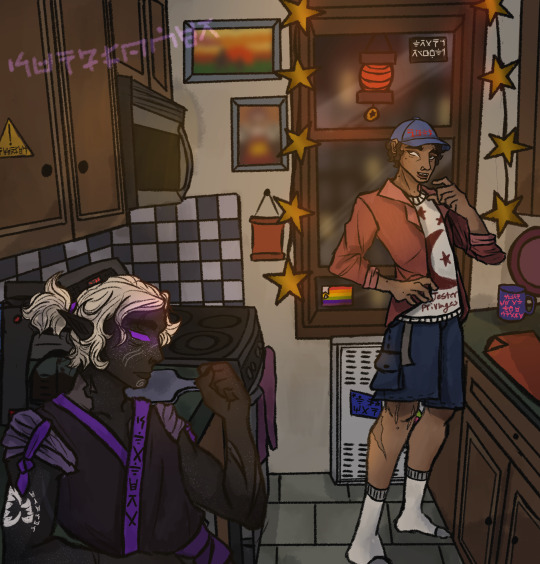
Survival shipping in THIS economy? Always when it's me!
What up folks I'm back having actually drawn a damn background for once in my life! Yall I've been on more of a survival kick than usual, maybe it's cause I'm writing a fic about them maybe it's cause I got a physical copy of the Garmadon Comics (my gf's little brother literally had to buy it from his ELEMENTARY SCHOOL BOOK FAIR like yall I was actually making a deal with a goddamn 10 year old it was so funny) but either way I made this, it's a scene from a chapter that's in the works and yes there's a reason Garmadon only has two arms I'm NOT just a fake fan I promise!
Anyways translations for Garmadon's tattoo: Exesus which means not only devoured and destroyed but also preyed upon and erosion (according to my friends who know Latin I myself was just using google translate)
And let me know if you catch any of the references in this image, first person to guess right gets a doodle of their choice (within reason) cause I like doing stuff like that!
Anyway that's all from me rn, don't forget to take care of yourself and have a great day/night PEACE OUT!
#ninjago#spinjitzu#ninjago secrets of the forbidden spinjitzu#garmadon ninjago#lord garmadon#vinny folson#vinny x garmadon#survivalshipping#vinny folson of NGTV News!#I love how they use “of NGTV New” like a fucking title it's so funny#my sense of humor is broken#gay#Is this old man yaoi? I don't even know what qualifies as that#I don't even really understand what old man yaoi means and at this point I'm to afraid to ask#old men
63 notes
·
View notes
Text
"Omg I wonder what Arthur's reaction would be if he saw the kinda content people make of him-"
Arthur:
#“I don't need your smutty fairies partner 😒”#he was so done with this guy it's so fucking funny#alternate title: “what its like entering the rdr2 fandom as an asexual”#I'm kidding around but I'm giggling sm#I strive have arthurs idgaf attitude honestly#rdr2#red dead redemption 2#mick squeaks#mick vids#funnies#arthur morgan#red dead redemption community#the way tumblr fucks up videos is going to be the end of me why is it so crunchy now when the og video is in good quality#barcode my horse
166 notes
·
View notes
Text
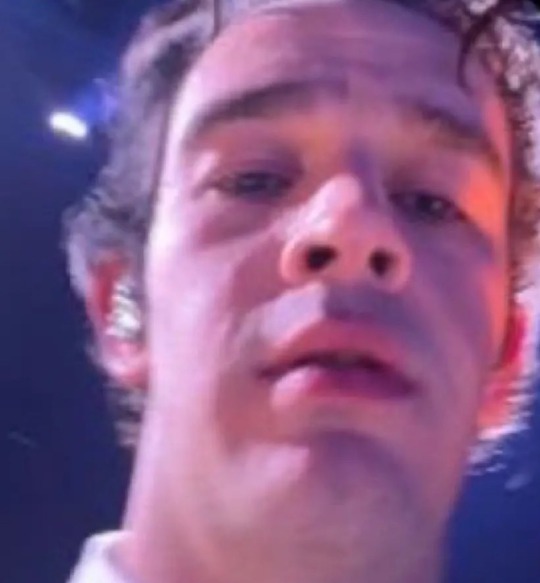



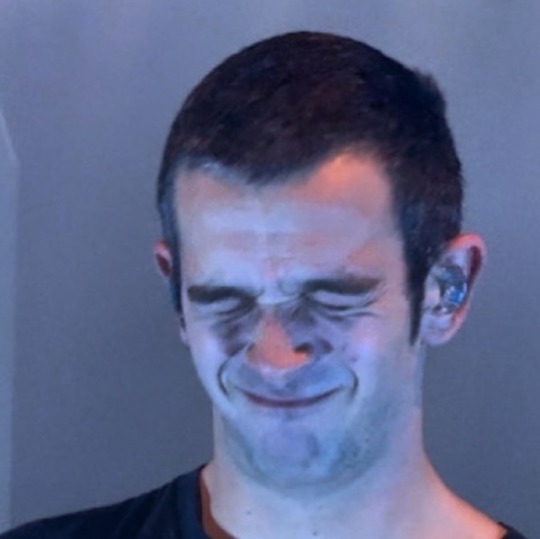
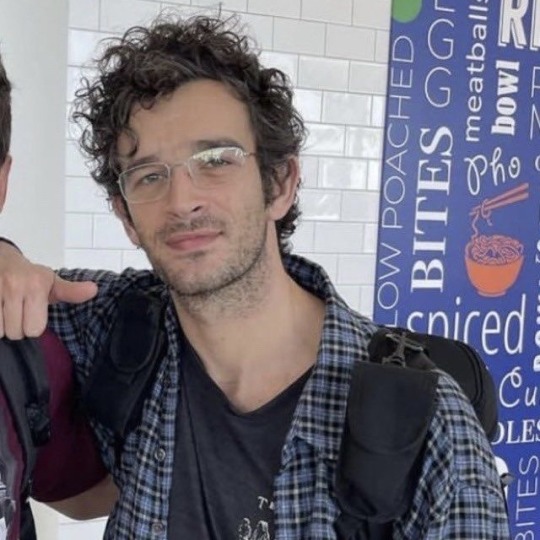

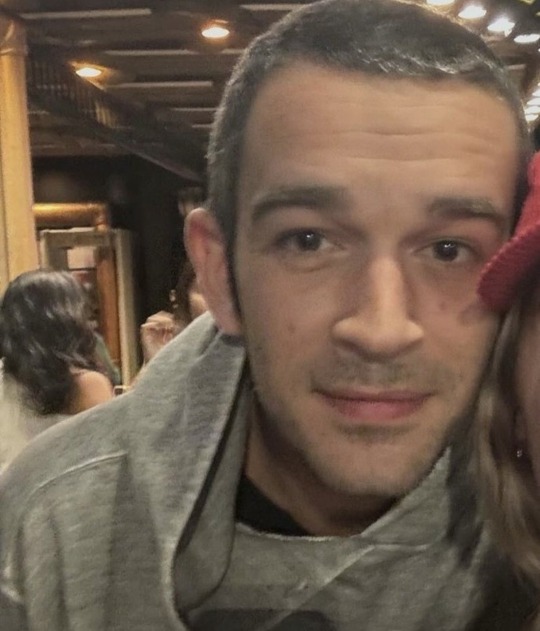

pictures of matty healy where he looks like a bug
#idk he just gives bug vibes#like hes so buggy#bugging the fuck out too#I love hiimmmmmmmmmmm#just based on vibes#like no actual boundaries for what counts as bug matty#just vibez#matty healy#the 1975#self titled#abiior#a brief inquiry into online relationships#noacf#notes on a conditional form#bfiafl#being funny in a foreign language#dlid#drive like i do
117 notes
·
View notes